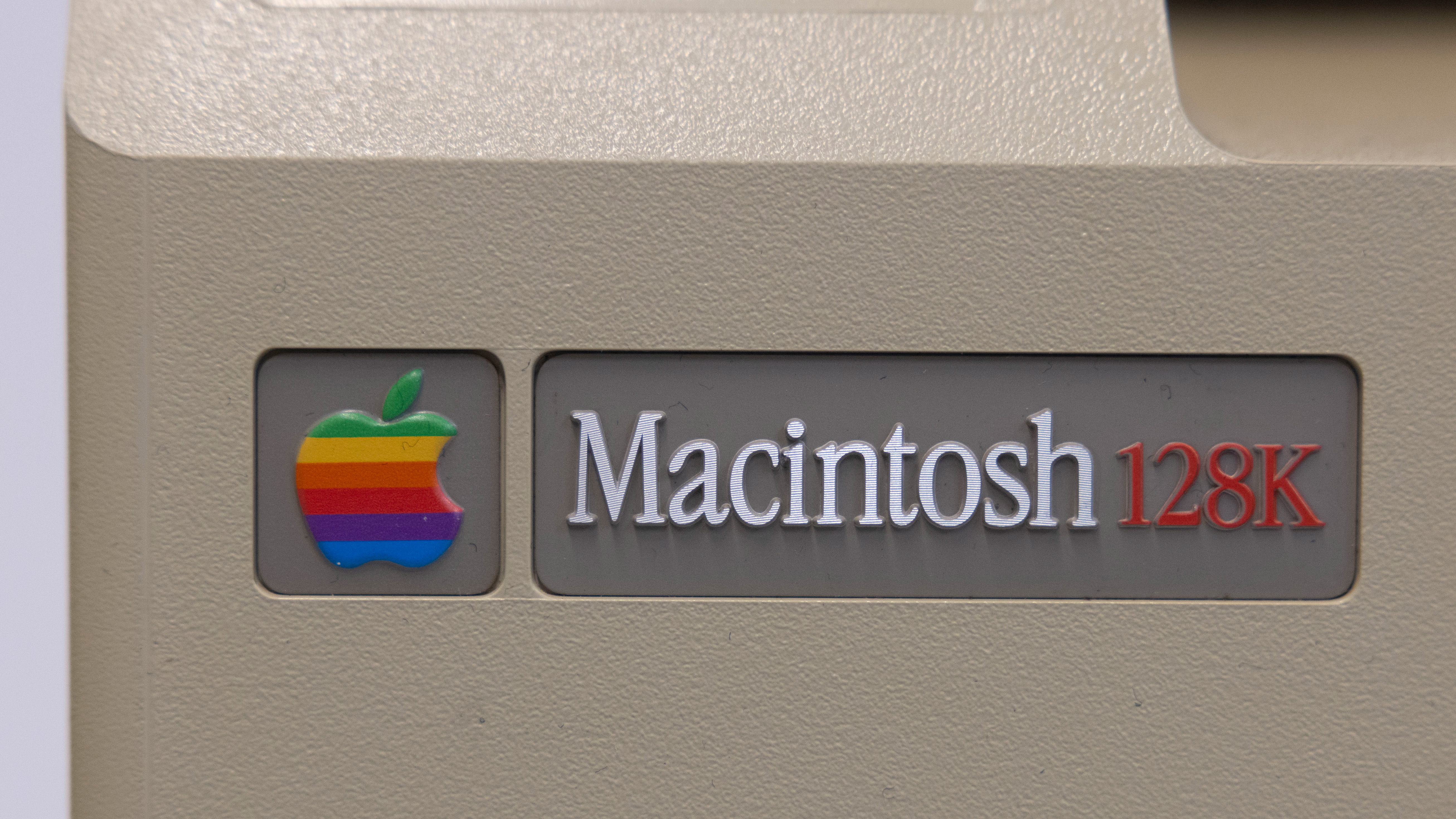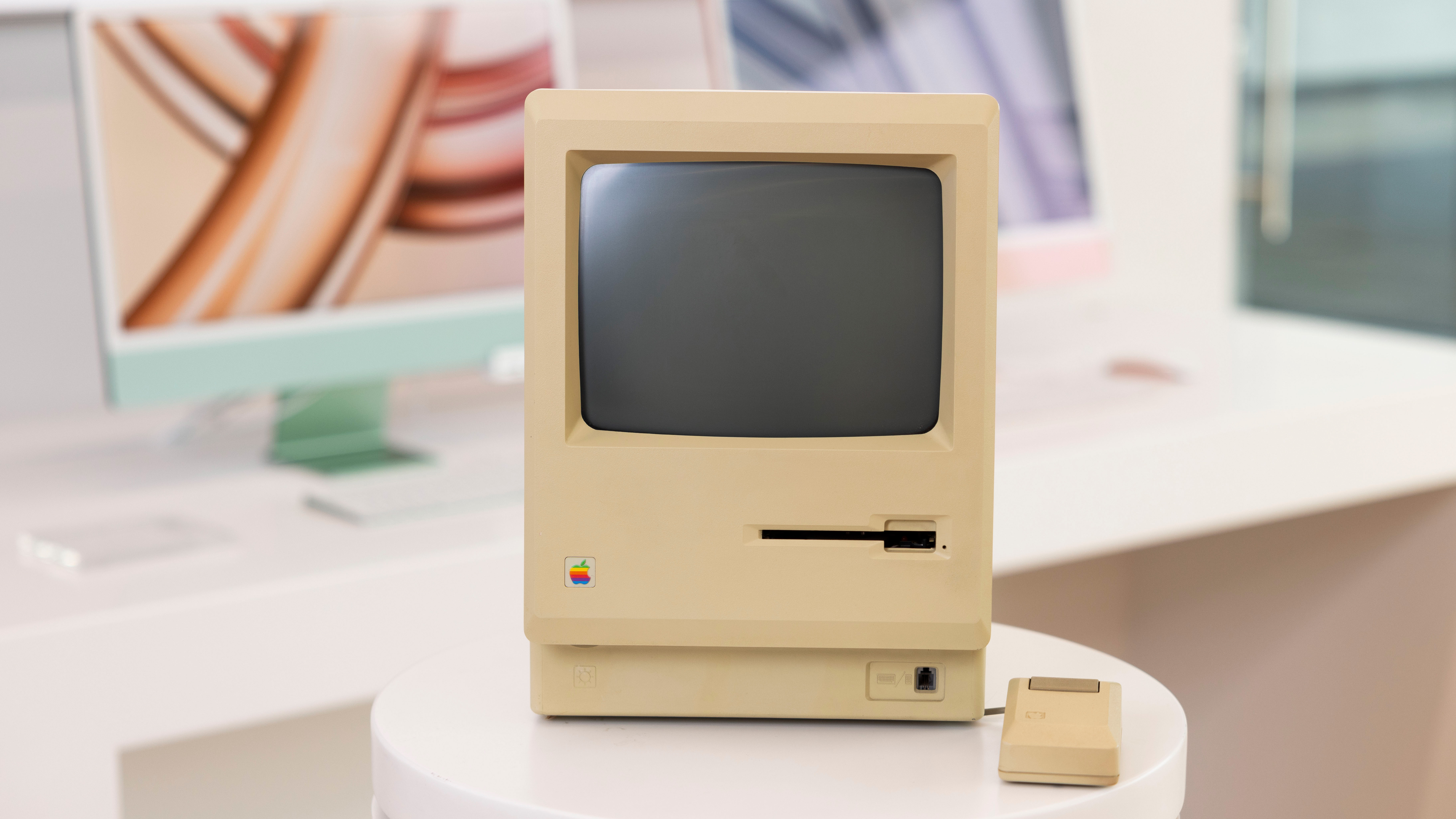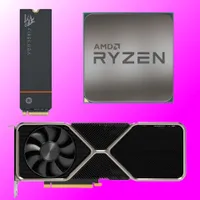The PC's greatest nemesis was born 40 years ago today
The Apple Macintosh was unveiled on this day 40 years ago, but ignoring the PC/Mac feud it's an awesome piece of tech worth celebrating.

The Apple Macintosh is 40 years old today. Far from the first home computer, the Macintosh has become one of the most well-known. Announced back in January of 1984, the Macintosh became famous as a personal computer that could compete with the IBM-compatible PCs that were so prevalent at the time. Or perhaps it was the George Orwell 1984 inspired Super Bowl ad that drew in the crowds—Apple sure does know how to make its products appear desirable.
"On January 24th, Apple Computer will introduce Macintosh. And you'll see why 1984 won't be like '1984'," the ad read.
To understand the Macintosh, you have to understand what Apple was working with in the early '80s. The California-based company had introduced a graphical user interface with the Apple Lisa, and a man by the name of Steve Jobs was particularly interested in the Lisa's GUI. Though the Lisa itself never really won over the market. It was an expensive machine—costing nearly $10,000 in its first incarnation and even in a cheaper form a year later demanding $3,500, according to Alex Wiltshire's Home Computers: 100 Icons that Defined a Digital Generation.
That wasn't going to cut it if Apple was going to compete with the IBM PC, introduced in 1981, which would begin a wave of IBM-compatible PCs powered by Microsoft software.
Enter, the Macintosh. Developed alongside the Lisa, the Macintosh was a whole lot cheaper than the Lisa despite using the same Motorola processor. A whole lot less RAM helped reduce costs. It launched for a cool $2,495 and included its own GUI alongside two apps designed to show off all the Macintosh had to offer: MacPaint and MacWrite.
The Macintosh was a ready to go box, including a 512 x 342 monochrome display and mouse, and that really helped sell it en masse.

Steve Jobs would talk up the Macintosh in his famous style, too, which would later become even more popular with the invention of the iPhone. The line? IBM is the bad guy, big blue, big brother and Apple is the only one that can stop it with its cool, independent, exciting Macintosh.
Keep up to date with the most important stories and the best deals, as picked by the PC Gamer team.
Of course, Apple would end up being by far the more closed off ecosystem next to Microsoft, which made its software widely available to all manner of PCs—the Macintosh marks the beginning of a product line that remains to this day designed by Apple itself. The irony…
Though, while this machine would eventually lead to the Mac vs PC debate and years of tribalism, I'm not here to give Apple a good kicking. The Macintosh, like many other computers of its time, was a seminal moment for the industry, and it proved that a GUI is much, much better than some command-line interface (sorry, hardcore Linux users). Without it, I still think we'd have a GUI like we're used to today, but maybe it wouldn't be quite the same as we know it now.
Best CPU for gaming: Top chips from Intel and AMD.
Best gaming motherboard: The right boards.
Best graphics card: Your perfect pixel-pusher awaits.
Best SSD for gaming: Get into the game first.

Jacob earned his first byline writing for his own tech blog, before graduating into breaking things professionally at PCGamesN. Now he's managing editor of the hardware team at PC Gamer, and you'll usually find him testing the latest components or building a gaming PC.


